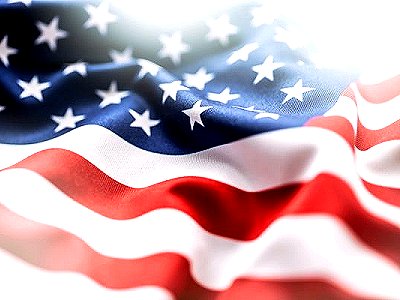
THE SECOND AMERICAN CIVIL WAR
Stories can bend round our resistant consciences like a free kick round a wall. ‘American War’ is one such.
Is it possible to get inside civil strife and how it messes people up? The answer is almost certainly no, for no amount of reportage can compensate for the sound and smell of fear and death, and the slow extinguishing of trust between citizens – even those ostensibly on the same side.
Most of our generation’s wars have been civil – Lebanon, Somalia, Yemen, Libya, the Democratic Republic of Congo, Syria, South Sudan – to name only a few. In an era of globalisation, war has moved as fluidly over national boundaries as capital and labour. Regional and global powers take an interest in the affairs of countries that implode; their involvement is rarely benign and frequently initiates the violence. Syria’s civil war began in March 2011 and shows no sign of abating. Brutal, unyielding, cynical – the violence feels unquenchable. And it has become discordant muzak to other peoples – a sound we have learned to block as we go about life.
When faced with such insurmountable challenges, stories have the capacity to bend round our obdurate consciences like a free kick round a wall in football. In scripture, the prophet Nathan used an allegory to expose King David’s sins of abuse and entitlement, while Jesus employed parables to express truth in a pithy idiom familiar to his listeners. In such cases, the shock was in the reversal of fortune; the twist in the final minutes against which people were defenceless.
In the novel American War, Omar El Akkad has tried something similar. If we find it hard to grasp the distinctions between Sunni and Alawite Syrians, many westerners have no difficulty distinguishing between north and south in the United States, and between Democrat and Republican. El Akkad posits a second American Civil War from 2074 to 2095, triggered by catastrophic climate change which leaves the State of Florida under water, Louisiana following suit and vast tracts of land barren and inhospitable. The southern States of Mississippi, Alabama, Georgia and South Carolina have seceded from the union over their devotion to fossil fuel and the resultant Free Southern State is poor, enfeebled and riven with its own fractious militias.
Modern war’s familiar terrain sweeps over America: drones, suicide bombers, extra-judicial detention centres. There are massacres and there is torture. Yet the story focuses on just one family, pivotal to the war, which experiences life the way Syrians and others do today. There is internal displacement, bereavement, separation, deprivation. One character in particular is brutalised by a massacre in a camp eerily similar to the horror of the Palestinian refugee camps, Sabra and Shatila, in 1982.
In a strange way, it is the prosaic encounters of life in a failing State that linger: the loss of agency; endless waiting; capricious bureaucracy; undignified privations; squalid accommodation; unhygienic facilities. American War inverts all we know of the world. Mexicans protect their borders; foreign superpowers cynically intervene in US affairs to weaken it and promote their own interests. In a way it isn’t subtle, but allegories like this work.
In its history, Israel was asked to remember the alien – the foreigner – because it had been enslaved in Egypt, unable to help itself. As the generations passed, Israel began to lose this empathy as the memory of it receded. For nations like the US and the UK, there are no memories of this kind of displacement and it is hard to imagine the suffering of people trapped by civil war. American War, however implausible a plot, walks us step by step through it; the story warming the limbs that connect us to other human beings and what they must endure. The first step of true intercession.
POPULAR ARTICLES

Obama's Covert Wars
The use of drones is going to change warfare out of all recognition in the next decades.

Through A Glass Starkly
Images of traumatic incidents caught on mobile phone can be put to remarkable effect.

What Are British Values?
Is there a British identity and if so, what has shaped the values and institutions that form it?


